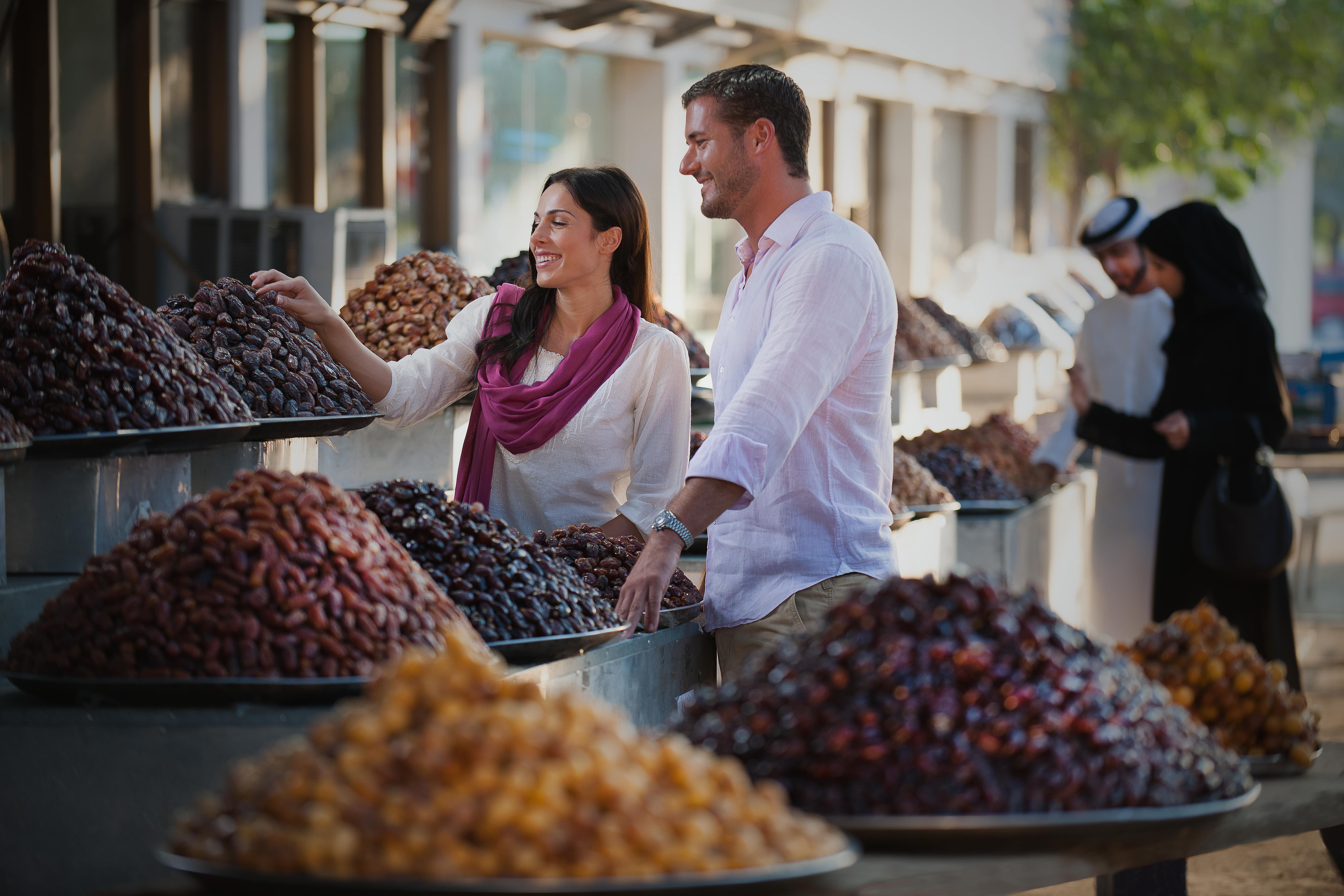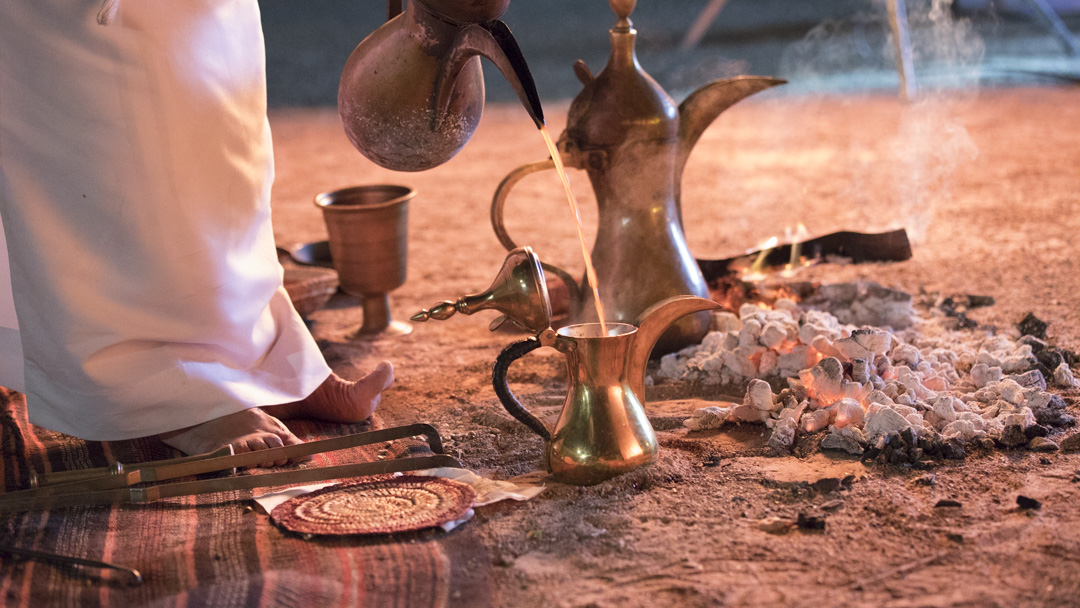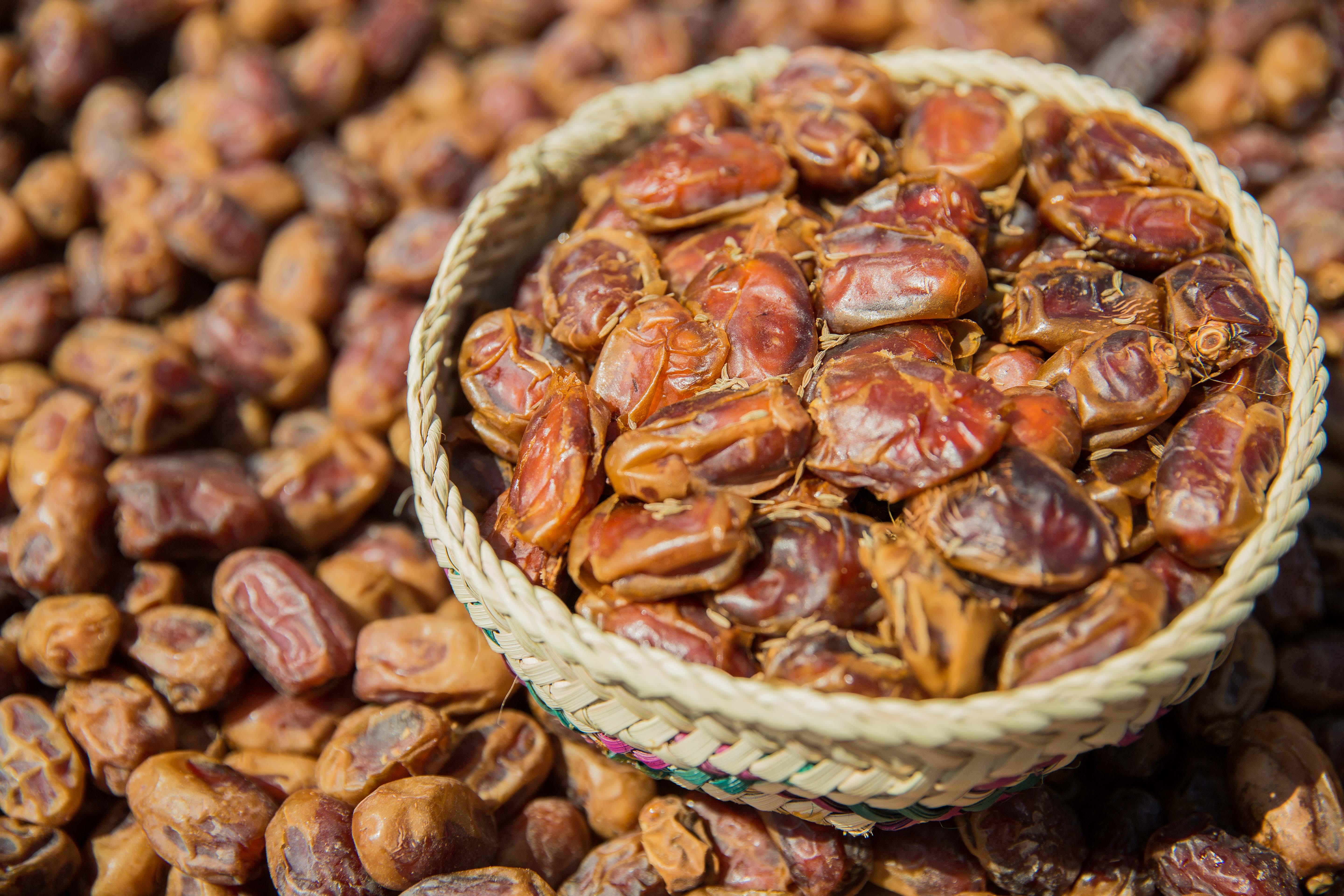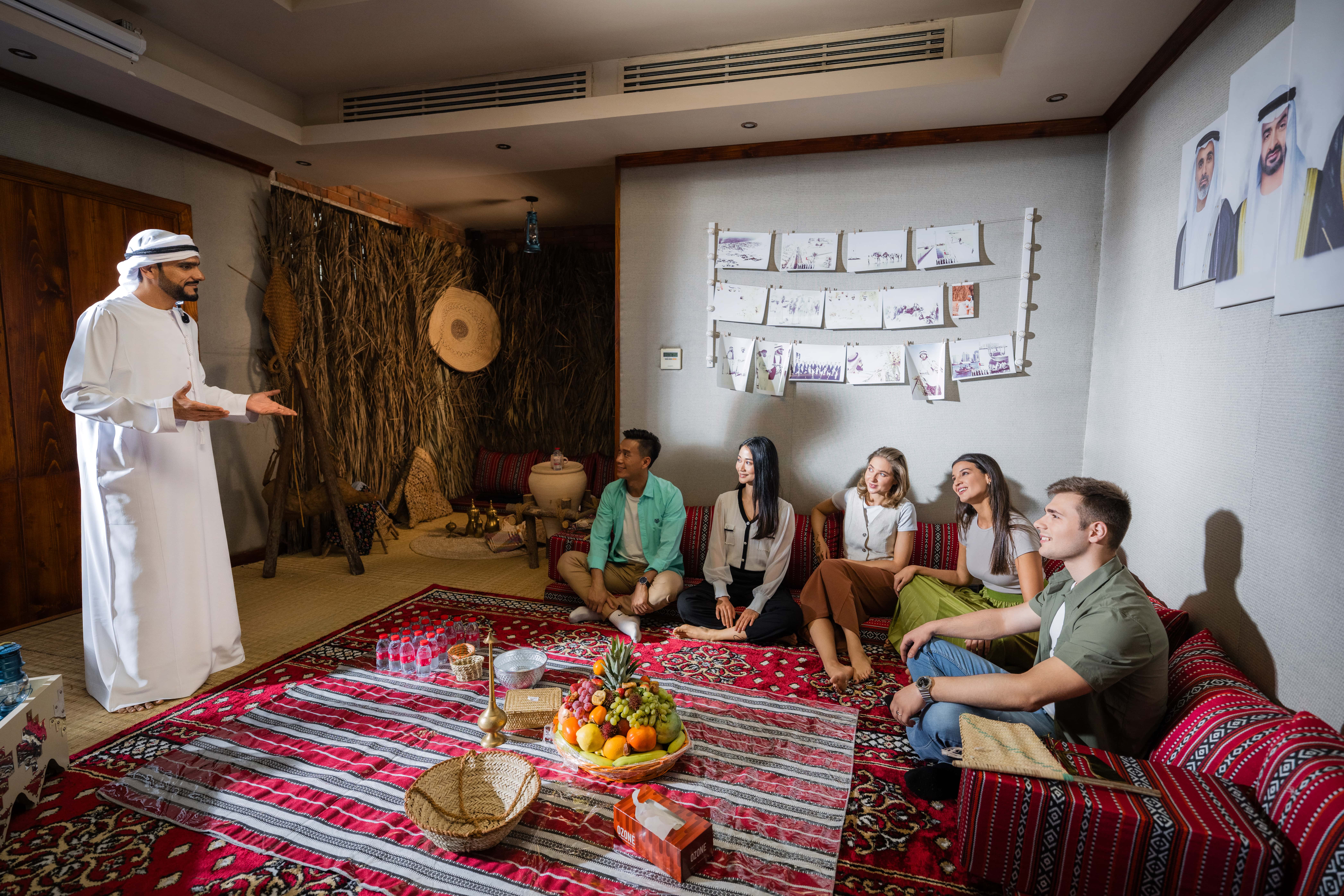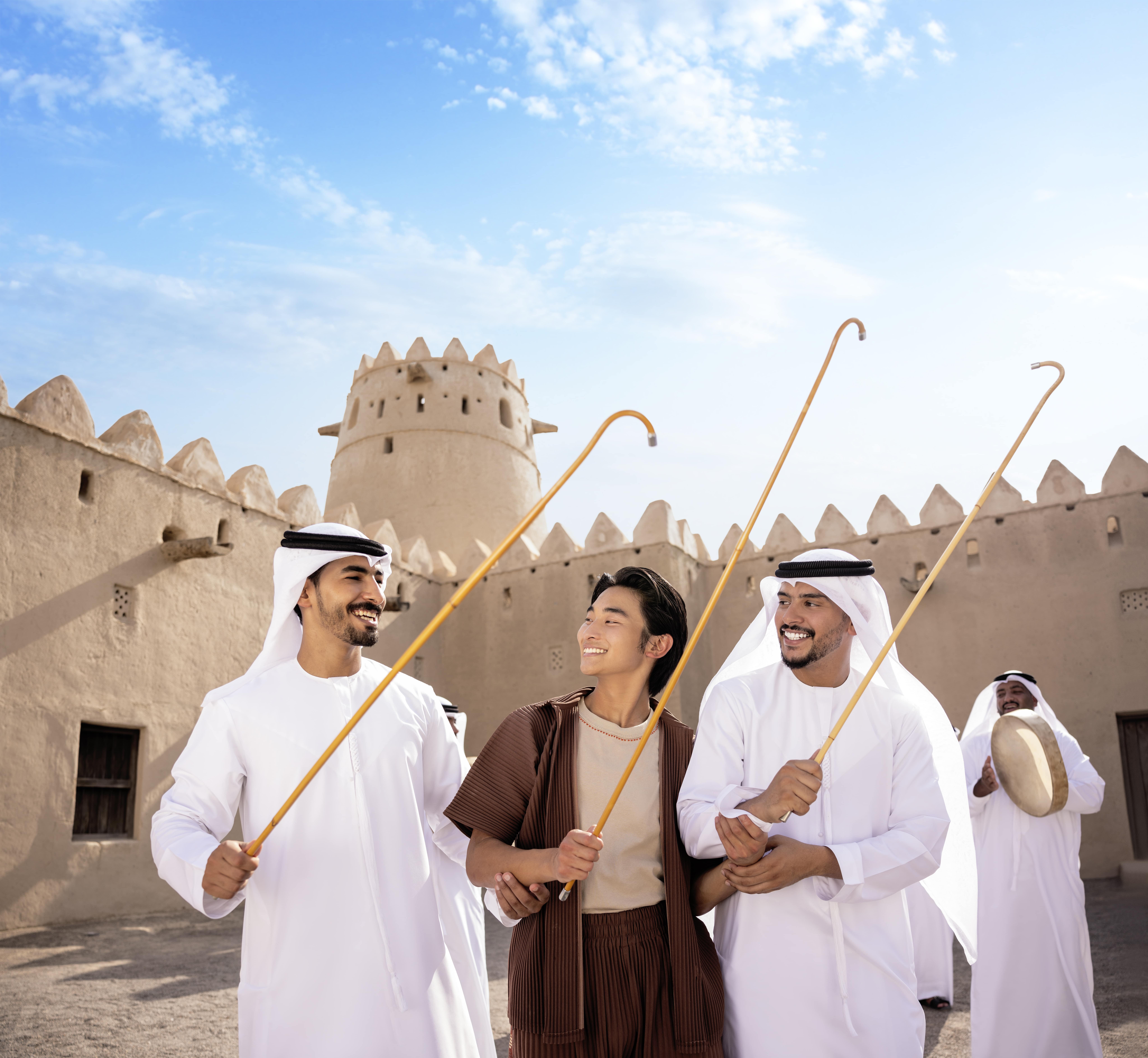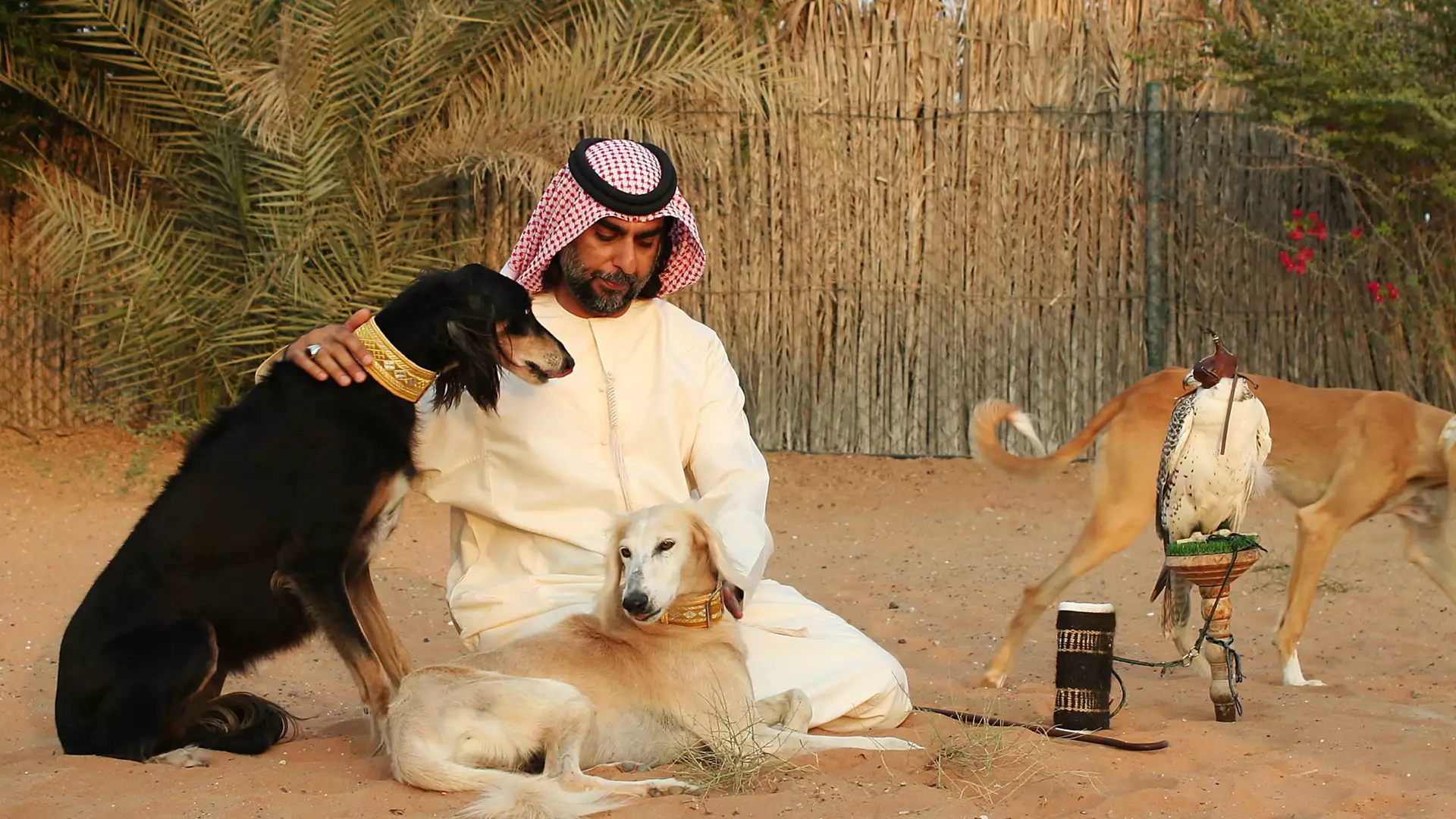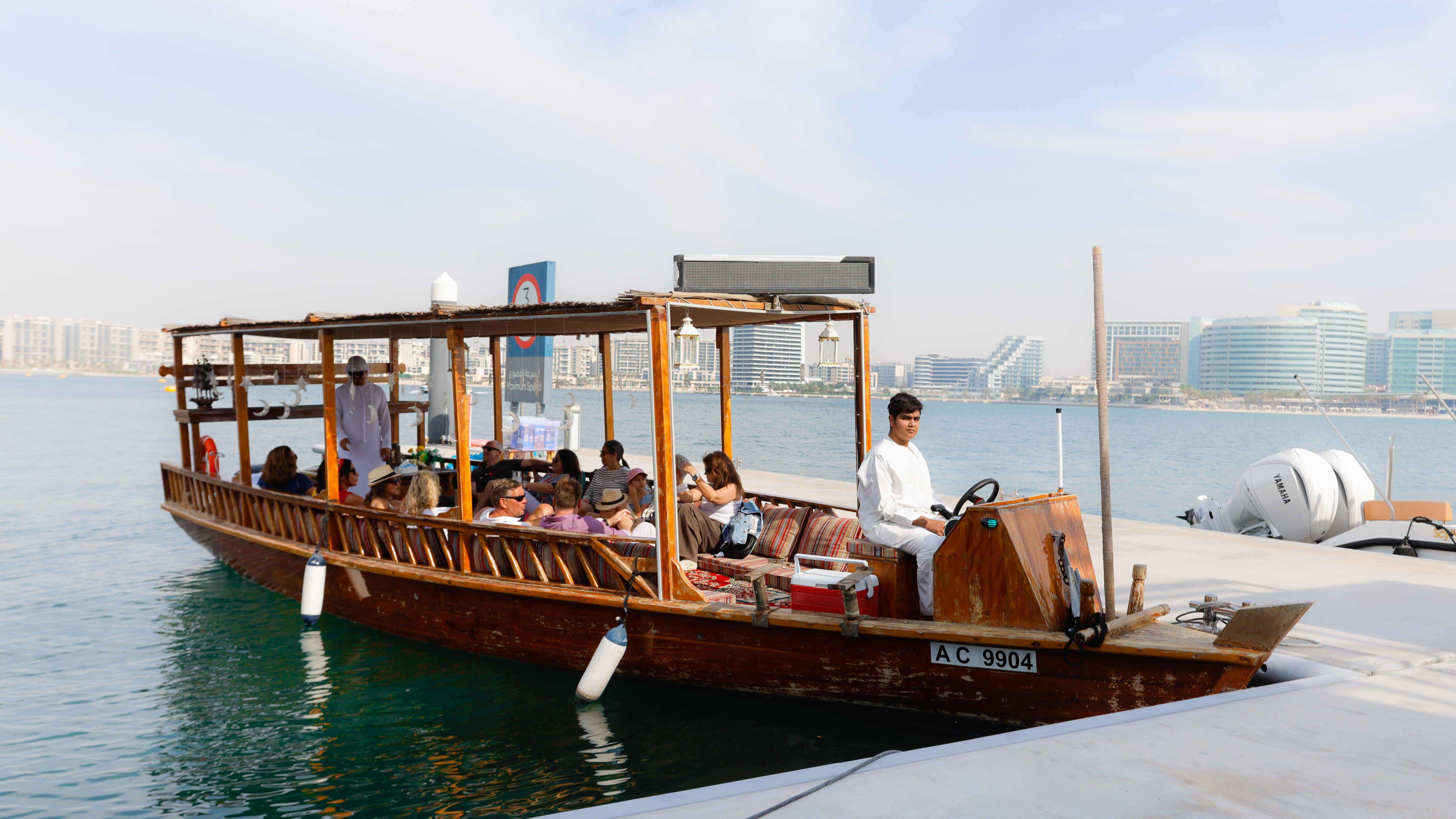Arabic Coffee
Arabic coffee, or gahwa in Emirati Arabic, has been a symbol of hospitality for centuries. Serving it to guests shows warmth and generosity, a gesture deeply rooted in Emirati culture. In the past, Bedouins brewed gahwa over open fires, blending beans with cardamom and saffron, and serving it in tiny handleless cups. Today, you’ll still find the dallah (coffee pot) at the centre of every gathering, often placed beside the majlis fire.
Preparing gahwa is an art, roasting, grinding, and brewing the beans to create a rich, aromatic flavour. It’s then poured just a quarter full, with guests enjoying one to three cups as a sign of respect. The UAE, along with Saudi Arabia, Oman, and Qatar, celebrated this cherished ritual by adding Arabic coffee to UNESCO’s Intangible Cultural Heritage list in 2015.


